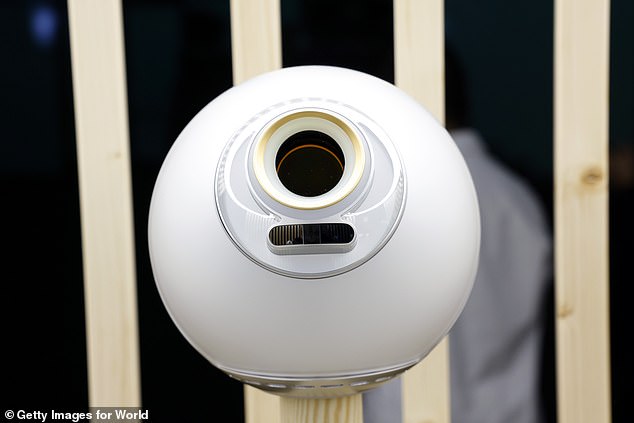The boss of the AI tool ChatGPT has revealed that his eyeball-scanning orbs are coming to the US, as questions still swirl around this dystopian step into the future.
Sam Altman announced Wednesday that the identity verification technology will now be available in six cities – Atlanta, Austin, Los Angeles, Miami, Nashville, and San Francisco.
The expansion into the US is all part of Altman’s plan to create a new global identity and financial network.
Currently, Altman’s cryptocurrency company World has rolled out the orb devices in more than 35 cities across over 20 countries worldwide.
The main purpose of these eyeball scanners is to verify that each user is a ‘unique human,’ not a bot or duplicate account.
The scanner reads the user’s iris to generate a unique digital code called an ‘IrisCode,’ which is then linked to a World ID.
This ID could act like a digital passport for secure, anonymous verification online for anything from logging into websites, accessing government services, or possibly even voting.
While over 12 million people have already been verified with the orb, concerns over privacy, data security, potential exploitation, and ethical implications have slowed Altman’s rollout in America.

The orb, created by Sam Altman’s startup Tools for Humanity scans users’ irises to create a unique online ID for them, primarily to access their World cryptocurrency accounts

Sam Altman (pictured) is also the boss of the AI tool ChatGPT, which he is concerned could be misused for creating fake content of people
The orbs will be available at six new orb-scanning hubs in these cities, with thousands of more orbs coming to Razer gaming stores, cafes, and college campuses, according to World.
The company’s current plan is to have 7,500 orbs available throughout the US by the end of 2025.
Altman and Alex Blania, a German physics researcher and World CEO, also unveiled a new smaller, eye-scanning orb on Wednesday.
Their hope is the more portable eyeball scanner-and-app combo will help get more people to enroll in World’s ID network, which stores everyone’s biometric data on a blockchain, a decentralized and secure digital ledger.
Instead of storing the IrisCodes in a central database controlled by World, the data is stored on a distributed network of computers that collectively maintain an allegedly tamper-resistant record.
In theory, this ensures that no single entity, including World’s parent company Tools for Humanity, has full control over the data, reducing risks of hacking or misuse by a central authority.
However, storing millions (and possibly billions) of people’s IrisCodes in the same technology used for cryptocurrency has raised major security concerns from governments and tech experts around the world.
In March 2024, Spain temporarily banned World from scanning people’s eyeballs with the orb for three months, citing concerns over the company’s handling of users’ personal information.
In 2023, Twitter co-founder Jack Dorsey pointed out the dystopian undertones of trying to register every person’s eye scans to use a single global currency, warning ‘Visit the Orb or the Orb will visit you.’

Storing millions of people’s iris scans in the same technology used for cryptocurrency has raised major security concerns from governments and tech experts around the world

The orb will now be available in 6 US cities, allowing people to get scanned and join the global ID and financial network
In December 2023, World was forced to temporarily scale back their orb scanning programs in India, Brazil, and France amid regulatory scrutiny over data privacy and consent issues.
Glen Goodman, author of The Crypto Trader, told DailyMail.com: ‘My first reaction was ‘there’s no way I’m putting my eyeball near that thing.”
‘The privacy implications make me very nervous. One of the main security risks is the orb itself. We don’t know what’s inside the sphere and so we don’t know whether it’s possible for someone to hack the orbs and retrieve our iris scans,’ the author explained.
‘When you have your iris scanned, you’re basically agreeing to hand over some of your most personal identifying data to a company based in the Cayman Islands, a tax haven. Do you trust that company not to misuse it? And if so, why?’
Despite the controversy over the orb itself, Altman has said he’s worried about the amount of fraud new AI tools could enable, including the generative AI programs that can make images and videos of people doing things they never did.
One of those generative AI tools was pioneered by his own startup, OpenAI, which prompted Altman to create the World app and ‘solve’ this privacy problem.
World’s network of users has reportedly doubled over the last six months, growing to an estimated 26 million users. However, less than half have scanned their iris with the orb.
World noted that the orb and the cryptocurrency’s app will not be coming to New York. A reason for the restriction was not given by World or New York’s Department of Financial Services.
This article was originally published by a www.dailymail.co.uk . Read the Original article here. .

